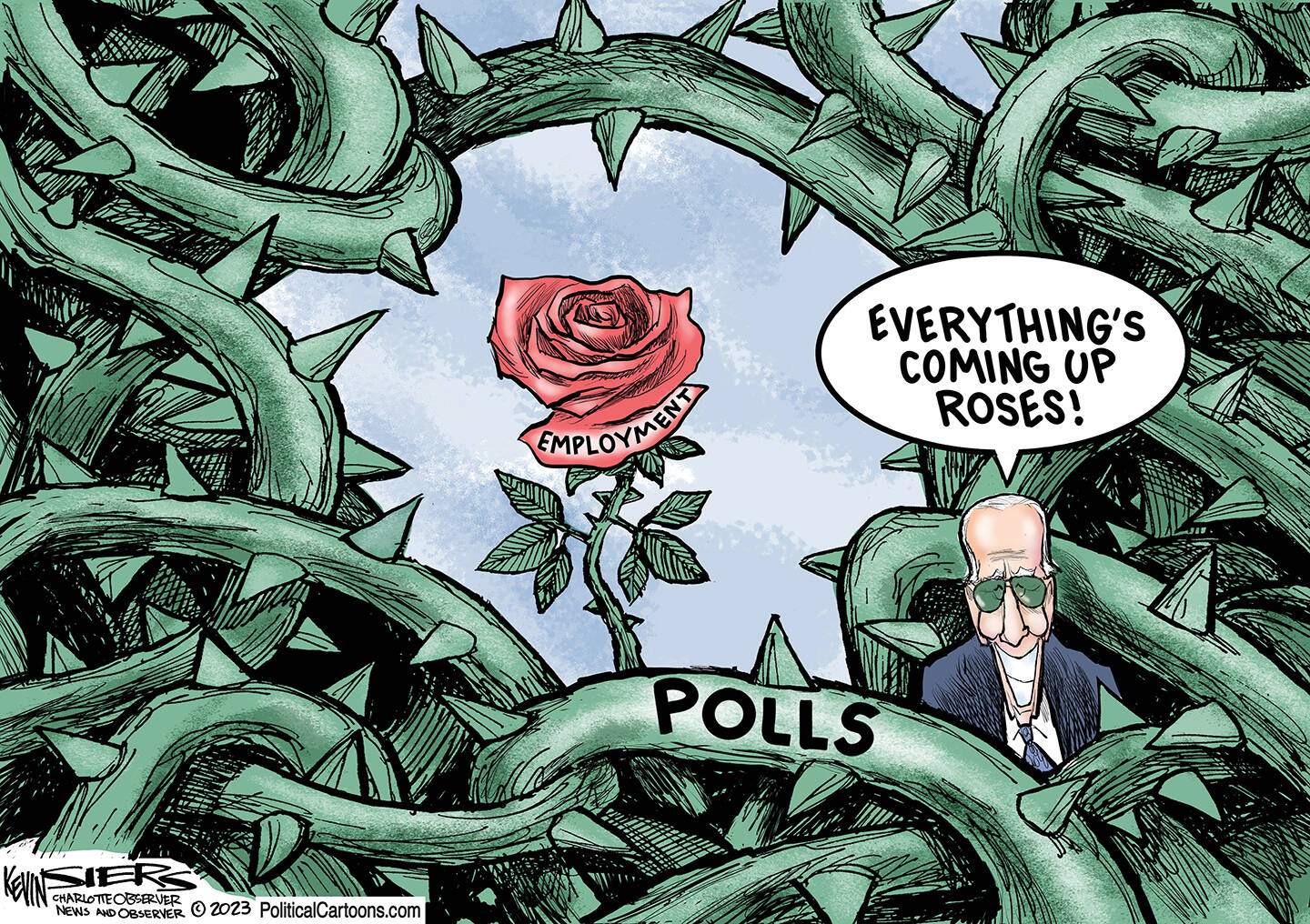Outwardly at least, the Democratic Party’s national leadership has exhibited no sense of urgency over the absence of any definitive announcement of a President Biden re-election campaign. They appear willing to submerge their misgivings and accept the representations of the president, his circle of advisers and those close to him – including the first lady – that he intends to seek a second term.
While counseling patience, the president’s team has attempted to soothe worries and ease nervousness by pointing to Biden’s repeated assertions that “there is more work to be done” as an unmistakable signal that he intends to complete the task. “‘I plan on running,” Biden said on the “Today” show.
A timetable for an official announcement has been a moving target – shortly after the first of the year, early spring, late April and now perhaps as far off as June.
With the opening of the primary season less than a year off, the uncertainty surrounding Biden’s decision has frozen the field, effectively forestalling any overt moves by potential competitors to build party support and lay the foundation for a national fundraising operation. It’s also led to speculation that second thoughts have crept into Biden’s mind, producing a germ of self-doubt about his ability to withstand the rigors of a national campaign amid broad and persistent dissatisfaction with his administration’s record.
Tellingly, a solid majority has expressed a desire for a candidate other than Biden, citing his age and concern that at 82 years old, he wouldn’t be up to the exhausting pace and pressures of a nationwide campaign and the physical and mental toll it inflicts. In the white hot campaign environment, Biden’s gaffes would be amplified as proof of an individual in cognitive decline who has lost the intellectual agility crucial to serving in the highest office in the nation and leader of the free world.
A campaign in constant damage control mode is a campaign that has lost initiative and message. While surrogate speakers have fanned out across the country touting the administration’s legislative accomplishments, it hasn’t delivered much of an impact. His public approval is stuck in the 40% range – in the 30s% in some polls – and his record in virtually every area of concern to the American people is well below 50%.
Critics have blamed the administration for a punishing inflation level and cost of living that have devastated low-income, middle class and senior Americans. He grades low as well in his response to rising crime, illegal immigration and foreign policy, while nearly two-thirds believe the nation is moving in the wrong direction. As the cost of living continues to rise, predictions of an impending recession have exacerbated fears that more difficult times lie ahead. Inevitably, the occupant of the White House is held responsible.
The president’s strategists have, it appears, decided to play for time, withholding an official entry into the race and hoping former president Trump – the Republican frontrunner – will build an insurmountable lead and lock down his party’s nomination. Trump, already under one criminal indictment and the subject of three federal and state investigations into alleged criminal conduct, would be a seriously weakened candidate whom the Biden team believes would be soundly rejected by the nation’s voters.
Trump’s unhinged social media rants and his evidence-free insistence that but for massive voter fraud he’d have been re-elected is a reminder of the chaos and daily drama of his tenure and will not resonate beyond his base. Democrats are gambling the Republican opposition will implode and validate their strategy of waiting and acting presidential rather than dealing with Biden’s every action seen through a partisan lens as a candidate. It appears a safe bet at the moment.
Carl Golden is a senior contributing analyst with the William J. Hughes Center for Public Policy at Stockton University in New Jersey. You can reach him at cgolden1937@gmail.


